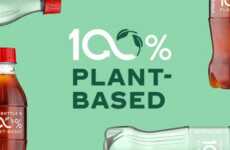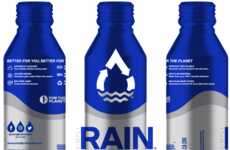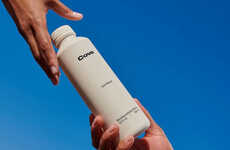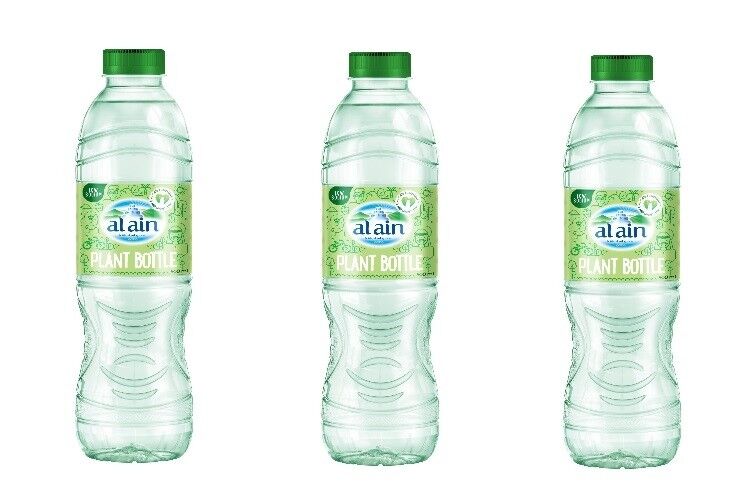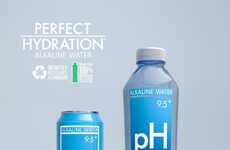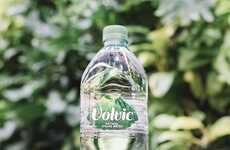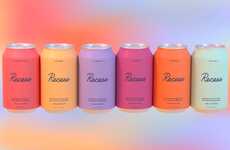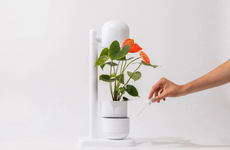
Al Ain's Water Bottle is 100% Biodegradable and Compostable
Jana Pijak — February 1, 2021 — Eco
References: beveragedaily
Middle Eastern bottled water brand Al Ain is aiming to put an end to plastic pollution with a new packaging solution that is 100% plant-based. The brand's bottles are designed to be fully biodegradable and are compostable after use, meaning no unwanted waste will be left behind.
With bottled water production resulting in a multitude of plastic pollution and long-term harm to the planet, water brands are taking action with carbon neutral pledges and new packaging that is designed with sustainability in mind.
Al Ain's packaging is made from corn sugars while its bottle caps are made from fermented sugar cane. Each bottle will also have a shelf-life of 80 days, a much shorter span than traditional plastic bottles. In addition to opening a new packaging processing center to bring its new packaging to life, Al Ain is aiming to replace 5% of its regular bottles with a new biodegradable alternative by 2021.
Image Credit: Al Ain
With bottled water production resulting in a multitude of plastic pollution and long-term harm to the planet, water brands are taking action with carbon neutral pledges and new packaging that is designed with sustainability in mind.
Al Ain's packaging is made from corn sugars while its bottle caps are made from fermented sugar cane. Each bottle will also have a shelf-life of 80 days, a much shorter span than traditional plastic bottles. In addition to opening a new packaging processing center to bring its new packaging to life, Al Ain is aiming to replace 5% of its regular bottles with a new biodegradable alternative by 2021.
Image Credit: Al Ain
Trend Themes
1. Plant-based Packaging - The increasing demand for sustainable packaging creates opportunities for companies to innovate with plant-based materials and reduce plastic waste.
2. Compostable Products - Companies can innovate with compostable products that naturally degrade into organic matter, reducing the impact of waste on the environment.
3. Reduced Shelf-life - Reducing the shelf-life of products can incentivize companies to innovate with sustainable packaging and reduce environmental impact.
Industry Implications
1. Beverage Packaging - New plant-based packaging creates opportunities for beverage companies to reduce plastic waste and become more sustainable.
2. Sustainable Materials - Innovations in sustainable materials like compostable corn sugars and fermented sugar cane provide opportunities for companies in various industries to reduce environmental impact.
3. Waste Management - The increased adoption of compostable and biodegradable products creates opportunities for companies in waste management to expand their services and improve sustainability.
5
Score
Popularity
Activity
Freshness


